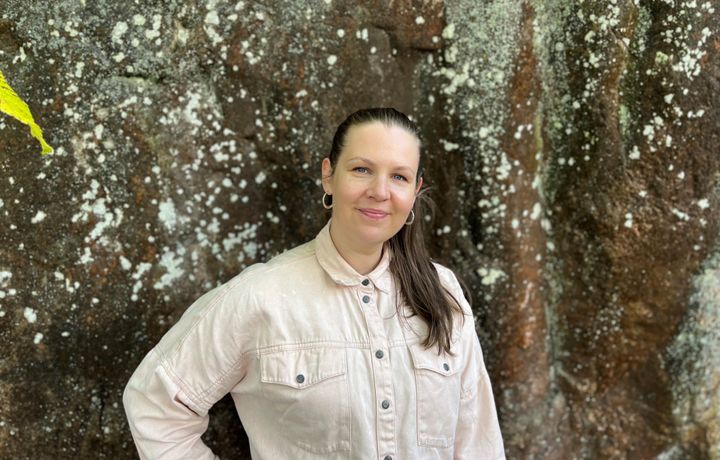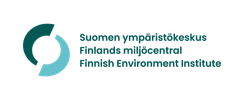How does local biodiversity affect the development of the human immune system?
Jenni Lehtimäki, a senior research scientist at the Finnish Environment Institute (Syke), has received €1.73 million in research funding from the European Research Council (ERC). The research aims to investigate how organisms other than bacteria influence the development of the human immune system and children’s health.

An ecological perspective on immune system development research
Previous studies have shown that extensive exposure to natural bacteria is crucial for the normal development of the immune system and reduces the risk of immune-mediated diseases later in life. While the role of bacteria is well known, they represent only a small proportion of all organisms. Lehtimäki’s central research question is how different organisms, from archaea to vertebrates, affect the development of the human immune system and health. As a child’s immune system develops, it encounters skin, saliva, faeces, hair, and other parts produced by various organisms. The role of these in the development of the immune system and the child’s future health is still largely unknown.
The research project will measure which organisms babies are exposed to during their first year of life and the effects this has on the development of the immune system and the later risk of developing immune-mediated diseases. Additionally, the project will examine changes in the biodiversity of children’s home environments over the past forty years and their connections to immune-mediated diseases using a research dataset containing about 2 million children. These approaches enable the study of the health effects of biodiversity on an unprecedented scale.
“The idea that humans are connected to the entire biosphere through our immune system is fascinating but also frightening. If our health depends on early encounters with various organisms, what could the decline in biodiversity or urbanisation of human habitats lead to?” asks Jenni Lehtimäki.
“To my knowledge, such research setups have not been implemented anywhere else in the world. My multidisciplinary project brings an ecological perspective to human health research. I believe this perspective can enrich traditional medical research,” says Lehtimäki.
“Biodiversity is important to humanity because it enables many basic life necessities such as food production. However, my project asks whether our connection to biodiversity is much more intimate than previously thought. I expect the research to provide new insights into the significance of biodiversity for human health,” Lehtimäki continues.
The multidisciplinary expertise, data, and collaboration of Syke and THL enable the research
The connection between various organisms and the health of young children is studied using DNA-based biodiversity monitoring methods, whose use and expertise have been developed at Syke in recent years. Environmental DNA (eDNA) can be studied from various samples using current laboratory and bioinformatic methods. The project will collect eDNA samples from the homes and local environments of hundreds of babies during their first year of life.
The project also utilises long-term monitoring data on biodiversity. This data will be combined for the first time with Finnish health data using the comprehensive children’s health registry data from the Finnish Institute for Health and Welfare (THL).
“This research project would not be possible without the long-term foundational work done by researchers, research institutions, and authorities. Valuable research always builds on high-quality research data,” notes Lehtimäki.
Prestigious funding enables long-term, innovative research
“I am immensely pleased with the significant funding I have received for my research. The funding enables ambitious and long-term research on what I consider a very important topic. It is great to establish a multidisciplinary research group to delve into the connection between biodiversity and human health,” says Lehtimäki.
Lehtimäki has succeeded in research funding competitions for the second time this year. In June, she was awarded the prestigious Research Fellow funding from Research Council of Finland for four years.
Jenni Lehtimäki’s funding is the first ERC funding for the Finnish Environment Institute.
Jenni Lehtimäki
- Senior Researcher at the Finnish Environment Institute’s Built environment solutions unit
- PhD in 2017 from the University of Helsinki, dissertation on the biodiversity hypothesis, field of study in ecology and evolutionary biology
- Research interests include the microbiome of the environment and the human body and their interconnections, the link between lifestyle diseases and living environments, and the significance of macroscopic and microscopic biodiversity for human health
- Jenni Lehtimäki and Tuomas Aivelo were nominated for the Vuoden Tiedekynä Academic Writing Award in 2024 for their article “Biodiversity promotes public health” published in Duodecim (Available in Finnish: https://www.duodecimlehti.fi/duo16472)
- Jenni Lehtimäki’s ERC Starting Grant project is titled “Residents: Multi-kingdom biodiversity in residential environments and immune-mediated diseases in children.” The project received €1.73 million in funding.
- Jenni Lehtimäki’s profile at Syke’s website: https://www.syke.fi/en-US/Experts/Jenni_Lehtimaki(58614)
- Phone: +358 50 350 3691, available 5-6 September (currently on parental leave)
ERC Starting Grant
- The European Research Council (ERC) awards funding to top researchers and their research teams for groundbreaking research. The ERC Starting Grant is aimed at researchers who are in the early stages of their careers. The goal of the funding is to support independent researchers who have between 2 and 7 years of research experience. The funding for a single project is up to €2.5 million and is awarded for a maximum of five years.
- In this application round, funding was awarded to 494 researchers out of 3,474 applications. The success rate for this round was 14.2%. Researchers from 18 Finnish research organisations were successful in this call.
Keywords
Contacts
Media service at Finnish Environment Institute
Our Media Service provides information on research, helps journalists find experts for interviews and provides photos for media use.
Our Communication experts will answer your inquiries on weekdays from 9 am to 4 pm.
Finnish Environment Institute - We build hope through research.
Finnish Environment Institute
Latokartanonkaari 11
00790 Helsinki
+358 295 251 000
It is time to move beyond solving environmental problems one by one, to systemic sustainability transformations. The Finnish Environment Institute (Syke) contributes to building a sustainable society through research, information and services. The Finnish Environment Institute is a research institute with 700 experts and researchers located in Helsinki, Oulu, Jyväskylä and Joensuu.

Subscribe to releases from Suomen ympäristökeskus
Subscribe to all the latest releases from Suomen ympäristökeskus by registering your e-mail address below. You can unsubscribe at any time.
Latest releases from Suomen ympäristökeskus
Vuoden 2026 alusta voimaan astuvat F-kaasuja koskevat uudet rajoitukset ja velvoitteet29.12.2025 16:03:26 EET | Tiedote
Vuosi 2026 tuo rajoituksia fluorattujen kasvihuonekaasujen (F-kaasujen) käytölle ilmastointilaitteiden ja lämpöpumppujen huollossa, desfluraanin käyttöön inhalaatioanesteettina ja uusia F-kaasuihin liittyviä laitekohtaisia kieltoja.
Nuoret vaativat merkittäviä muutoksia ruuan kulutukseen ja tuotantoon16.12.2025 12:00:00 EET | Tiedote
Nuorten ruokaraati vaatii avointa ja tutkittua tietoa ruuasta – sen alkuperästä, tuotantotavoista ja vaikutuksista ilmastoon, luontoon ja hyvinvointiin. Ilman selkeitä faktoja vastuulliset kulutusvalinnat eivät ole mahdollisia. Nuoret luovuttavat kannanottonsa kansalliseen ruokastrategiaan 2040 maa- ja metsätalousministeriön tilaisuudessa 16.12.2025.
Kommunernas utsläpp fortsätter minska – trafikens andel av utsläppen ökar16.12.2025 06:00:00 EET | Pressmeddelande
Enligt förhandsberäkningsuppgifterna för 2024 minskade Finlands växthusgasutsläpp enligt Hinku-beräkningsreglerna med cirka fem procent jämfört med föregående år. På lång sikt har utsläppen sedan år 2005 minskat med 40 procent och jämfört med år 1990 med 43 procent.
Kuntien päästöt laskevat edelleen – liikenteen osuus päästöistä kasvaa16.12.2025 06:00:00 EET | Tiedote
Vuoden 2024 ennakkolaskentatietojen perusteella Hinku-laskentasääntöjen mukaiset Suomen kasvihuonekaasupäästöt laskivat noin viisi prosenttia edelliseen vuoteen verrattuna. Pitkällä aikavälillä vuodesta 2005 lähtien päästöt ovat vähentyneet 40 prosenttia ja vuoteen 1990 verrattuna 43 prosenttia.
Viikkokatsaus 15.–19.12.202511.12.2025 12:59:58 EET | Tiedote
Hei! Tässä tiedoksesi meillä Suomen ympäristökeskuksessa ensi viikolla ilmestyviä tiedotteita, uutisia, kampanjoita, blogeja ja uutiskirjeitä. Mukana myös tulevia tapahtumia ja webinaareja. Jakelemme viikkokatsauksen torstaisin STT:n kautta. Koosteet löytyvät myös STT-uutishuoneesta, josta voit tilata kaikki Suomen ympäristökeskuksen tiedotteet.
In our pressroom you can read all our latest releases, find our press contacts, images, documents and other relevant information about us.
Visit our pressroom